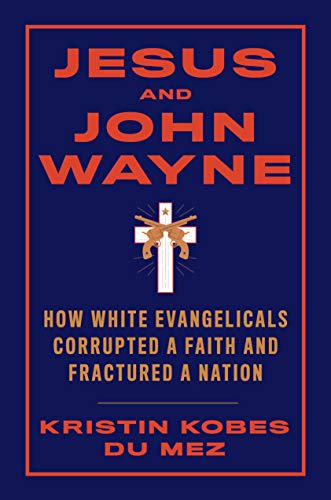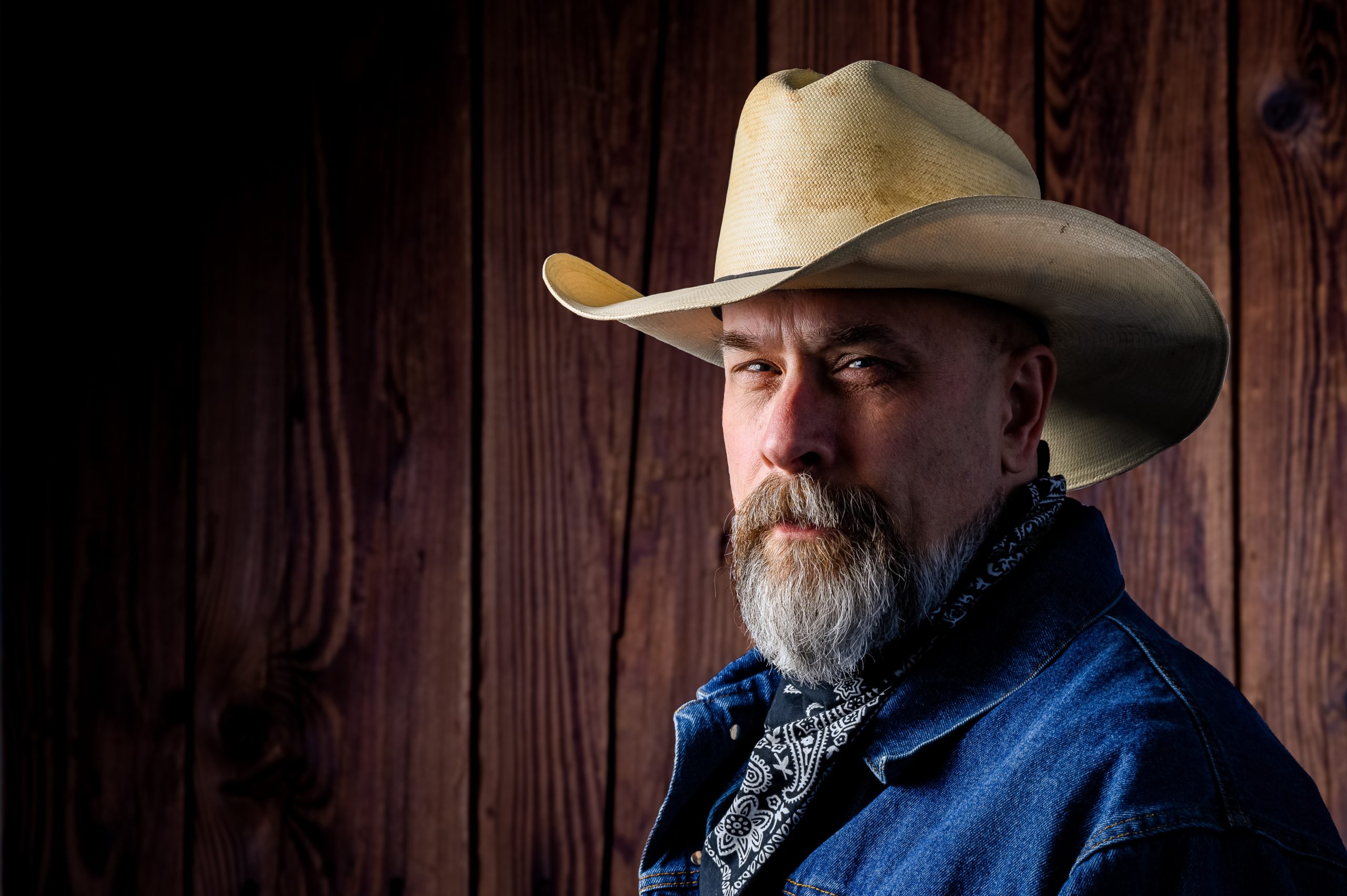I feel seen.
That’s the summation after reading this masterful, wonderfully researched book about the peculiarities of white Evangelicalism and the Americanized Jesus who was once Brown and poor and despised, the victim of the oppressive empire, but who has been transformed into the muscular, gun-toting, migrant-hating, welfare-despising, violence-loving, manly man-centered white male gonzo who seeks to rule everyone by force for their own good and for the pleasure and power of white men.
I was raised in the milieu that Du Mez talks about. I got adopted into the Beloved Community in the late 1960s in the “Jesus Movement” (JM) in Southern California, and many of the people mentioned in this book are familiar to me not only because I know their names but also because I was a recipient of their teaching and ministries. Now, the JM was not the genesis of this state of white Evangelicalism; in fact, to my experience, much of the JM was orthogonal to the beliefs and practices of the white Evangelical world. And yet, we from the JM gradually succumbed to the white Evangelical industrial complex so completely that some of the leaders of the free spirit of the JM are now fully on board with The Former Guy, serving as his loyal allies in church meetings as easily as in political events. (I’m looking at you, Greg Laurie, and it’s hard to explain just how deeply you have disappointed me when I see you at ceremonies “honoring” The Former Guy in the very Rose Garden where he denied the existence of COVID-19 and denied the reality of the 2020 election. What happened to you and your free spirit, inquiring mind, and willingness to reach those who are on the margins? You’ve become a thoroughly compliant part of the Christian industrial complex.)
I will confess I went along with the change, because the people who were my leaders were going along with it. Surely they must have deeper insight and understanding. Surely what God wanted in America was conservative politics and capitalistic economics. Surely God wanted the poor to suffer because suffering might make them work harder. Surely God wanted America to be both blessed and white-majority and white-ruled. Surely God wanted white Evangelicals to run America as if all of this nation was a church and the white male Evangelical pastors the only rulers divine appointed for said rule.
But I grew more and more uneasy with this dissolution of my outside-the-camp religion that had become the state religion, and finally broke a decade ago. I couldn’t figure out, though, what had happened to cause people to descend into madness. The very churches that told me continuously in the 70s, 80s, and 90s to avoid the antichrist and to avoid post-modernism and post-truth became . . . the churches that abandoned faith and reason, and descended into pure white nationalism.
So it was fascinating to see Du Mez uncover the threads that connected these people, from Graham to Bright to Dobson to Graham and Falwell and the rest, along the way losing the holiness and moral behaviors that scripture teaches us about in order to embrace The Former Guy who exemplifies all that they warned about until the chance at power was finally at hand.
I laughed that sad, rueful laugh as I read, discovering more and more how I’d been had, how I’d been reassured that all was well even as decisions leading to the irruption of The Former Guy were being made behind the scenes. (Lordy, how loud Dobson became about the “danger” to America of a Clinton—both times!—for their assumed “lack of moral behavior” and how quickly he bowed the knee to The Former Guy!)
This is a great book for people like me, who went through a lot of this and did not know why it was happening. It is also a great book for those who were wounded by people like me and the churches that people like me built and evangelized for.
There’s no excuse for what happened. There were always the voices—often shouted down—saying that we were going off a cliff. We didn’t listen, and the result is that we have stained our faith for several generations, watching our children see our own shallow Christian behaviors and responding with “I’ll never believe in your faith.” We have done this to ourselves, sowing the wind and reaping the whirlwind, and Du Mez tells us why. It’s too late to unwind all the damage that we have done to the name of Jesus in the lives of those who have heard us and watched us and been harmed by us, but perhaps we can unwind from continuing to repeat the damage, again and again, hoping that we smash all opposition and erase all memory.
Our children are watching to see what we will do now, after watching us spend decades creating the most peculiar and unsatisfying version of Christianity. Let’s hope that we listen and learn and repent.

From the publisher:
Jesus and John Wayne is a sweeping, revisionist history of the last seventy-five years of white evangelicalism, revealing how evangelicals have worked to replace the Jesus of the Gospels with an idol of rugged masculinity and Christian nationalism—or in the words of one modern chaplain, with “a spiritual badass.”
As acclaimed scholar Kristin Du Mez explains, the key to understanding this transformation is to recognize the centrality of popular culture in contemporary American evangelicalism. Many of today’s evangelicals might not be theologically astute, but they know their VeggieTales, they’ve read John Eldredge’s Wild at Heart, and they learned about purity before they learned about sex, and they have a silver ring to prove it. Evangelical books, films, music, clothing, and merchandise shape the beliefs of millions. And evangelical culture is teeming with muscular heroes, mythical warriors and rugged soldiers, men like Oliver North, Ronald Reagan, Mel Gibson, and the Duck Dynasty clan, who assert white masculine power in defense of “Christian America.” Chief among these evangelical legends is John Wayne, an icon of a lost time when men were uncowed by political correctness, unafraid to tell it like it was, and did what needed to be done.
Challenging the commonly held assumption that the “moral majority” backed Donald Trump in 2016 and 2020 for purely pragmatic reasons, Du Mez reveals that Trump in fact represented the fulfillment, rather than the betrayal, of white evangelicals’ most deeply held values: patriarchy, authoritarian rule, aggressive foreign policy, fear of Islam, ambivalence toward #MeToo, and opposition to Black Lives Matter and the LGBTQ community. A much-needed reexamination of perhaps the most influential subculture in this country, Jesus and John Wayne shows that, far from adhering to biblical principles, modern white evangelicals have utterly remade their faith, with enduring consequences for all Americans.
Get this book at online bookstores by using the links here: https://www.amazon.com/gp/product/B07ZTSVLX3

